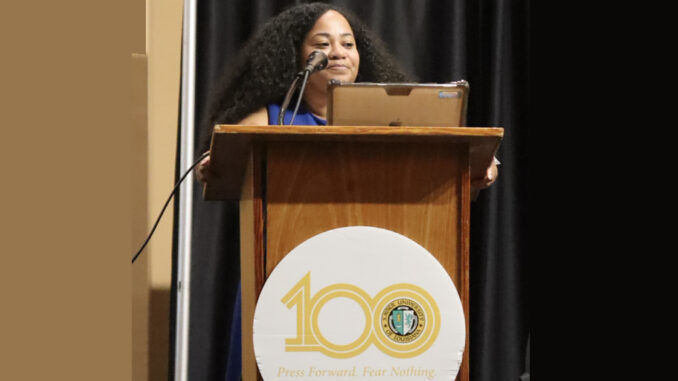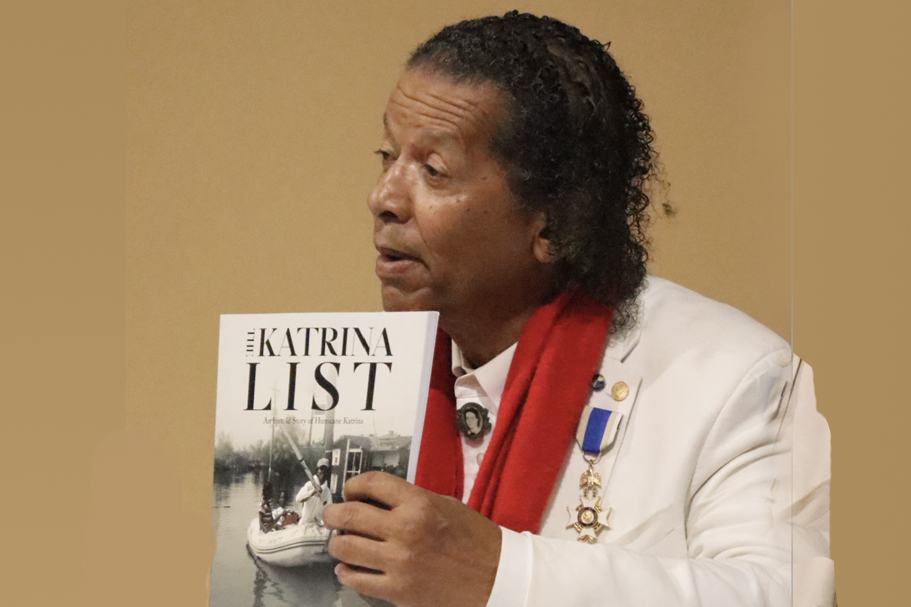
“My strongest memory is the participation I took in the search and rescue of people who were stranded in the water during Hurricane Katrina,” said Author Omar Casimire, who founded the Katrina National Memorial Museum Project. Casimire played a critical role in saving lives across the city, commandeering a boat to reach those in need. He has kept the memory of Katrina alive, publishing “The Katrina List” in 2021, a book documenting the storm’s untold tragedies, while also taking on the difficult task of updating the death toll by recording the names of loved ones lost.

“The government reported 1,800 or so people died, but it’s over [that],” Casimire said. “Some of the officials say about five or six people died at the Convention Center,” but he believes there are far more deaths that were unrecorded.
The city’s low-income neighborhoods were receiving little to no assistance in the evacuations and rescues, as residents tried to escape the dangerous floods.
“It is those who have already recovered and refuse to help those who are still suffering from the wrath of not just Hurricane Katrina, but [post-] hurricane racism,” said Malik Rahim, a Community Activist, and New Orleans native. Rahim shared that his mother’s house was threatened during the time of Katrina, and he feared it may be taken away due to him being Blacklisted from getting a job. The challenges that remain in neighborhoods were even more impacted by the storm, shifting the focus from physical to social and systemic failures.

“One of the greatest things younger people can pay attention to is policy. There were so many policies that were not in place. There were policies that just completely derailed what needed to happen at that time,” said April Winder, a New Orleans native. Winder, who worked with the New Orleans Katrina Commemoration Foundation, helped solidify August 29th as “Katrina Day” in Louisiana.
“That was momentous, simply because it is always going to be that thing that we have to hold to remember the folks whose lives were lost and to also be able to just honor that day, honor that moment, honor them,” Winder said.
Presenting mutual aid as the most powerful and effective path for community recovery, Dr. Cassandra Shepard, an Assistant Professor at Xavier University of Louisiana, noted that New Orleans natives are still waiting for lasting government support nearly two decades after Katrina. Many continue to question whether state and federal agencies have moved on from the disaster while communities still bear its scars.
“What we need is a collective movement that takes care of each other… Mutual aid is how we all help each other to be able to get through disasters and events that are difficult. And I think that that is where the power truly lies,” Shepard said.
Recommended For You.



Be the first to comment